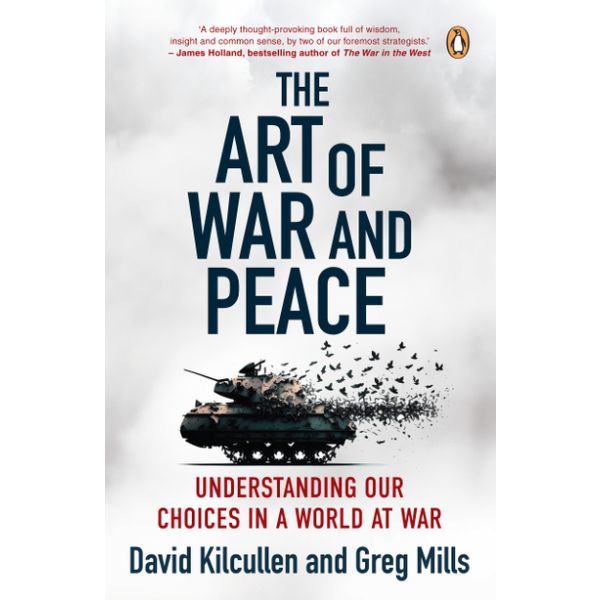The Art of War and Peace (EBOEK)
David Kilcullen has professorships in Australia and the US, and is a leading theorist and practitioner of guerrilla and unconventional warfare, counterinsurgency and counterterrorism, with operational experience over a 25-year career with the Australian and US governments as a light infantry officer, intelligence officer, policy advisor and diplomat. He served in Iraq as senior counterinsurgency advisor to US general David Petraeus, then as a senior counterterrorism advisor to US secretary of state Condoleezza Rice, and has served in Afghanistan, Pakistan, Somalia, Libya and Colombia.
Greg Mills heads the Johannesburg-based Brenthurst Foundation, is a senior associate fellow and advisory board member at the Royal United Services Institute in London, and currently serves as the strategic advisor to the president of Zambia. He sat on the Danish Africa Commission and the African Development Bank’s high-level panel on fragile states. He served four deployments to Afghanistan as the advisor to the commander, and he has also worked extensively in Colombia, and with a variety of African governments to improve the conditions for stability, investment and growth. Along with Dr Kilcullen, he is the author of The Ledger, which pinpoints the reasons for failure in Afghanistan.
R305,00
In voorraad
ISBN
9781776391868
Formaat:
EPUB
Publikasie datum:
2024-08-01
How have the character and technology of war changed in recent times?
Why does battlefield victory often fail to result in a sustainable peace?
What is the best way to prevent, fight and resolve future conflict?
The world is becoming a more dangerous place. Since the fall of Kabul and Russia’s invasion of Ukraine, the US-led liberal international order is giving way to a more chaotic, contested and multipolar world system. Western credibility and deterrence are diminishing in the face of wars in Europe, the Middle East and Africa, tensions across the Taiwan Strait, and rising populism and terrorism around the world. Can peace, mutual respect and democracy survive, or are we destined to a new permanent chaos in which authoritarians and populists thrive?
Based on their decades of experience as policy advisors in conflicts in Afghanistan, Iraq, Colombia and across Africa, and on recent fieldwork in Israel, Ukraine, Ethiopia and Taiwan, the authors analyse the nature of modern war, considering both large-scale, high-intensity state-on-state conflicts as well as limited-objective, irregular, low-intensity conflicts that often include both inter- and intra-state dimensions.
The book investigates how technology can be a leveller for small powers against larger aggressors; how one can shape and sustain a viable narrative to ensure public and international support; the balance between self-reliance and alliance commitment; and the role of leadership, intelligence, diplomacy and economic assistance.
Weighing up past lessons, present observations and predictions about the future, The Art of War and Peace explores how wars can be won on the battlefield and how that success can be translated into a stable and enduring peace.
| Publikasie Datum | 01 Aug. 2024 |
|---|---|
| Formaat | EPUB |
| Skrywer | David Kilcullen , Greg Mills |
Skryf jou eie resensie


